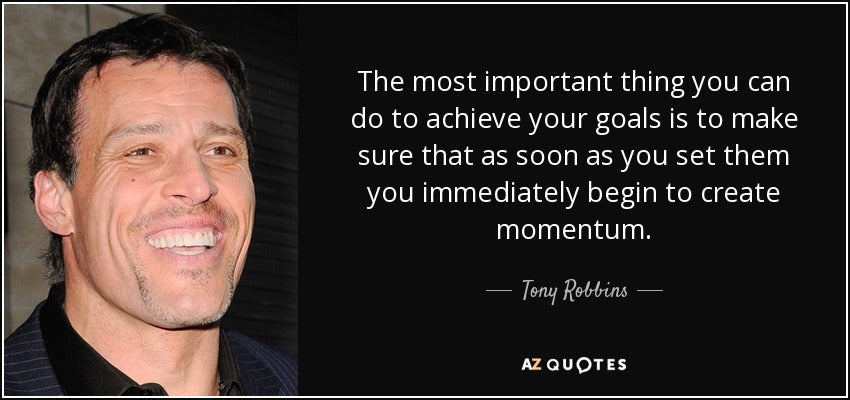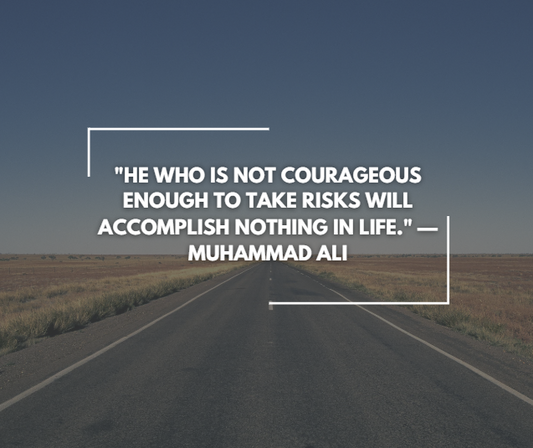"The most important thing you can do to achieve your goals is to make sure that as soon as you set them, you immediately begin to create momentum." - Tony Robbins
The saying, "The most important thing you can do to achieve your goals is to make sure that as soon as you set them, you immediately begin to create momentum" highlights how crucial momentum is to achieving objectives. It implies that the first steps taken after deciding on a goal are essential to creating a path for advancement. This statement can be examined to learn more about the psychology of goal-setting, the significance of momentum, and the impact of early actions on long-term success.
When it comes to achieving goals, momentum is the force that results from deliberate, consistent actions made in the direction of the desired result. People are propelled forward by this dynamic energy, which fosters a sense of advancement and achievement. According to the statement, one can harness the power of momentum to drive sustained efforts more quickly if they start taking actions that are in line with their goals.
The psychology of goal-setting recognises the significance of commitment, drive, and clarity in reaching intended results. People who establish well-defined objectives establish a path that directs their behaviour. Setting goals alone, however, is insufficient; what gives these ambitions life are the actions that follow. Intentional and prompt action creates a behavioural and psychological momentum that strengthens the dedication to the objective.
The idea is consistent with the notion of the "activation energy" needed to initiate a process. The initial efforts are what provide the activation energy needed to overcome inertia when achieving a goal. By acting right away, people lessen their chances of putting off tasks and establish a positive feedback loop that strengthens their conviction that improvement is achievable.
Early momentum can impact confidence and motivation in a domino fashion. Little triumphs and accomplishments, particularly in the beginning, support self-efficacy—the conviction that one can accomplish goals—and foster a positive outlook. Achievement generates self-assurance, which in turn provides the drive to keep going in the face of difficulties.
The statement also recognises the importance of routines and habits in maintaining momentum. Once formed, habits become second nature and support sustained effort. People who take early action establish constructive habits that support their objectives. Once these patterns become deeply embedded, they provide a steady stream of energy and establish a forward motion rhythm.
On the other hand, procrastination and delayed action can stifle enthusiasm and hinder advancement. It gets harder to overcome inertia and gain momentum the longer one waits to start moving towards their goals. Procrastination creates friction in the process, which makes it more difficult to gather the required momentum to overcome obstacles and failures.
In goal-setting, the idea of momentum draws attention to how iterative the process is. People can modify their strategy, improve their plans, and adjust their approach as they take the first steps and receive feedback from their actions. Not only does momentum propel forward motion, but it also offers insightful information that makes achieving objectives more efficient and flexible.
To sum up, the phrase "The most important thing you can do to achieve your goals is to make sure that as soon as you set them, you immediately begin to create momentum" highlights the crucial role that momentum plays in the goal-achieving process. People who act with promptness and purpose that is in line with their objectives are able to harness the dynamic force that drives them forward. Early momentum builds good habits, fosters behavioural and psychological reinforcement, and prepares the groundwork for long-term success. It emphasises how quickly taking action can transform goals into real, observable results.






